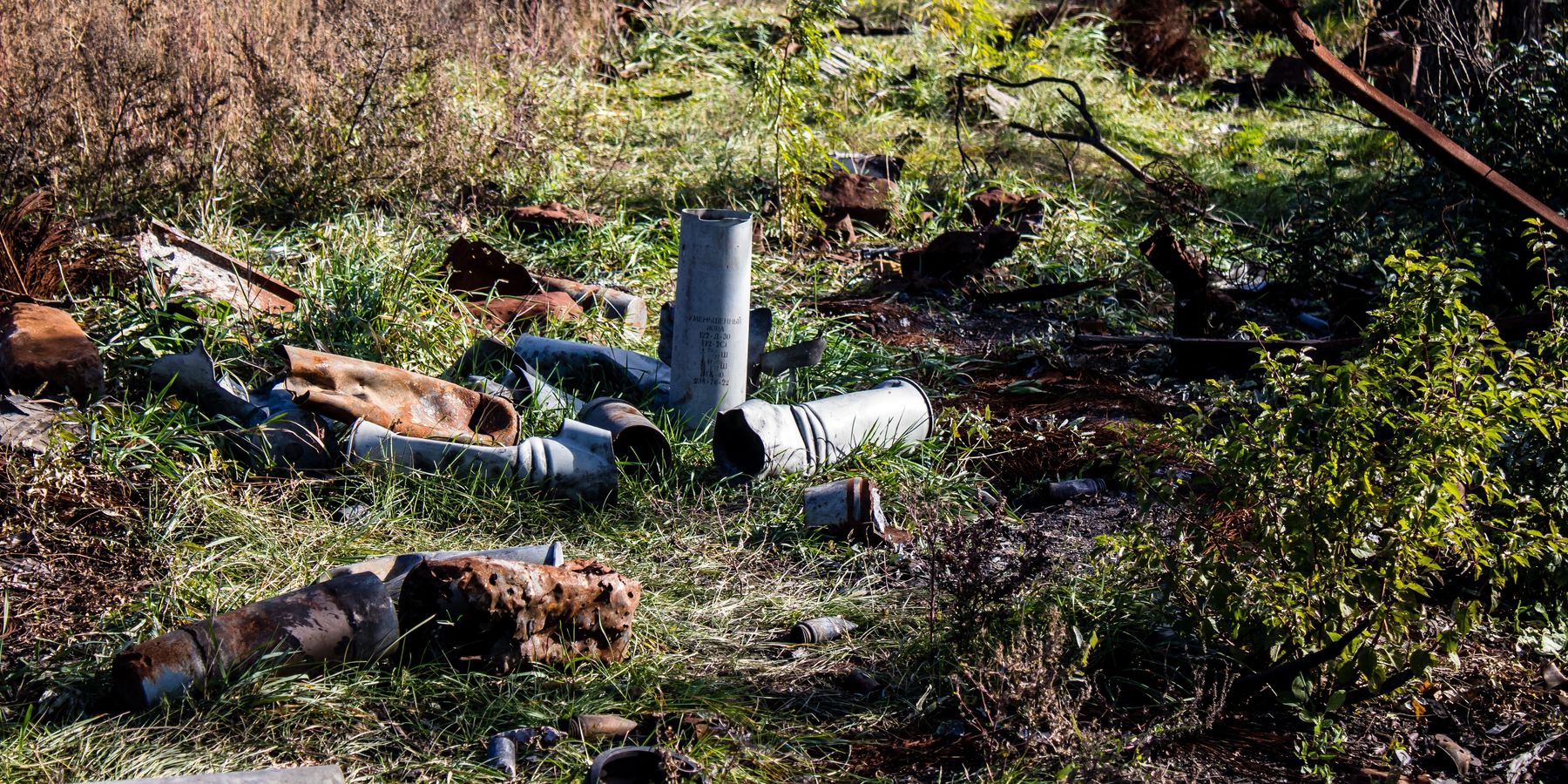There’s no question that war leaves behind its lingering destruction. This includes both harm to people and to the environment. As the world marks the second year of Vladimir Putin’s illegal invasion of Ukraine, we must reflect on the impact of war on Ukraine, the resiliency of its people and global response to resolving the issues of bomb contamination.
Roughly one-third of Ukraine's territory is contaminated. This is the size of an average country in Europe. Ukraine is currently experiencing the worst environmental disaster in terms of soil pollution per unit of time.
Toxic elements such as lead, cadmium, arsenic, and mercury leach from ammunition and weapons into the soil. If potential areas of contamination are not identified and recorded in time, harmful substances can enter the food chain and become carcinogenic. This threatens global food security and export opportunities. Failure to act now could result in the deterioration of human health.
Prior to the war, about 400 million people worldwide relied on Ukraine for their food supply making this a large-scale problem. Spent ammunition and chemical weapons can contaminate soil for decades or longer. Land is not a renewable resource. Soils and their fertile layer are formed over thousands of years. Just 1 cm of soil is formed in 200-400 years, and 20 cm in 5,000-6,000 years. Military operations that take place for 2 years like in the case of Ukraine can destroy what has been formed over thousands of years.
Contaminations left behind from war are nothing new. We know this from wars in SE Asia, conflicts in the Middle East, Africa, and the list goes on. It’s no surprise then that at least 50 countries are impacted by landmines and other explosives. The good news is there are solutions to the long lasting impacts of conflicts like unexploded ordnance on humans, all living things and our planet.
One example is a project called “Assessing farmland and ecosystems damage in north-eastern Ukraine from the Russian invasion” (UA-UK-CH) led by this article's co-author Dr. Olena Melnyk. This project is a joint initiative with researchers from Ukraine, England and Switzerland aimed at enhancing the capacity for mapping, environmental monitoring, and managing the effects of war-induced damage on Ukraine's agricultural land, utilizing existing networks of scientists and field-based analysis to safeguard food security. The first component of the project involves gathering ground truth data on the damage inflicted on Ukrainian farmland, which is then utilized to analyze the extent of soil pollution and calibrate remote sensing data.
The second component focuses on developing an application for mapping farmland to document hazards and contamination and prioritize land for production and remediation.
The third aspect involves building up “citizen science” by training non-combatant experts to inspect and analyze contaminated farmlands and contribute to land mapping efforts.
The fourth component aims to facilitate the decontamination and remediation of Ukrainian lands to restore agricultural productivity while promoting post-war environmentally friendly agricultural practices to ensure sustainability and climate neutrality. This project will enable Ukrainian farmers to avoid dangerous areas and prioritize the land for targeted decontamination. The data collected from this research project will help inform government agencies, civil societies and other stakeholders.
The United States is the largest funder of global humanitarian demining. Since 1993, the U.S. has provided at least $4.2 billion to over 100 countries from Laos to Ukraine. Funding is invested in activities such as bomb clearance, victims’ assistance and explosive risk education.
Environmental research like the UA-UK-CH in Ukraine has proven to be necessary and important to the future of soil rehabilitation post conflict. This should be a norm and donor countries, funders, academic institutions can leverage the future findings from Ukraine and leverage it as a model that can inspire research in other war impacted countries — especially 50-year-old legacy contaminations in Laos, Cambodia and Vietnam—where no study has been done.
















